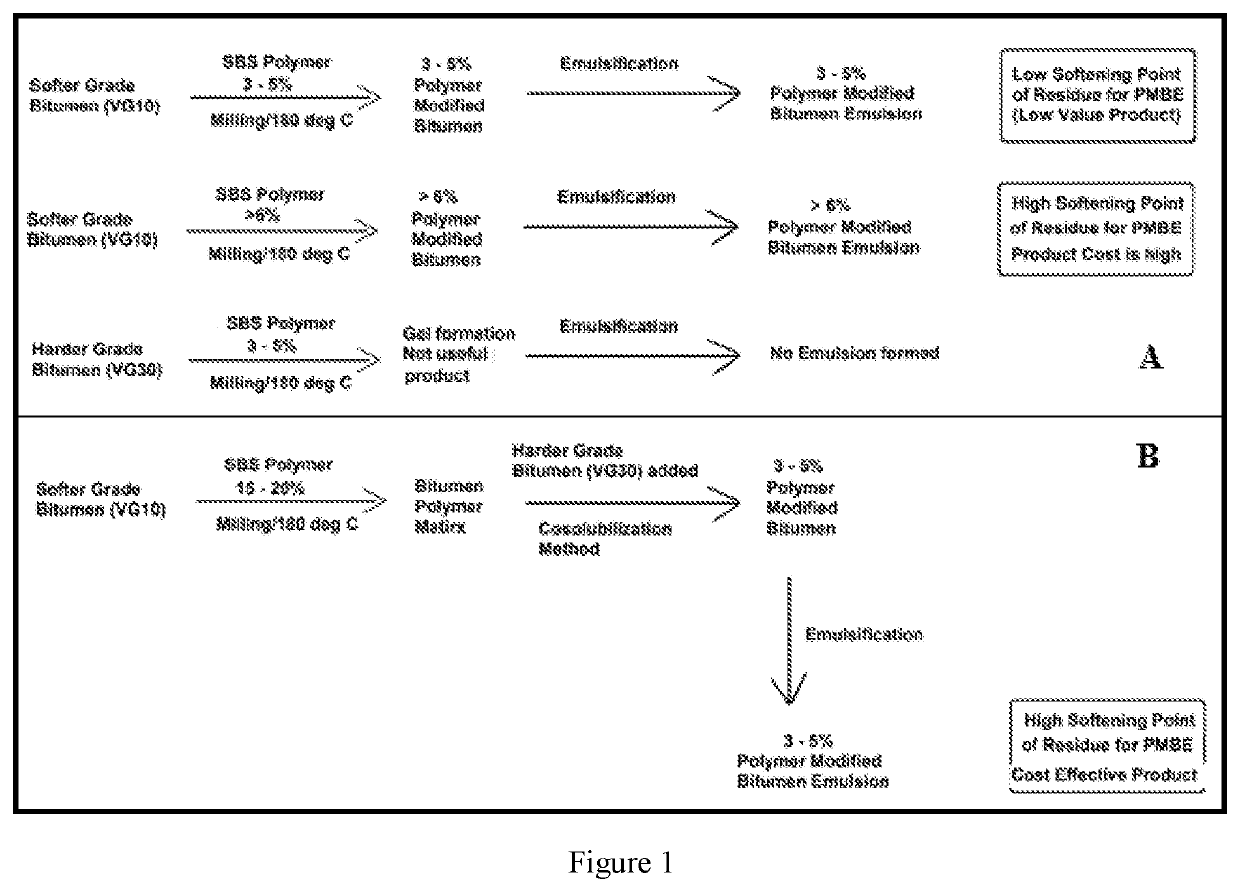Co-solubilization process for preparing modified bitumen and product obtained thereof
a technology of cosolubilization process and modified bitumen, which is applied in the direction of building components, building insulation, construction, etc., can solve the problems of affecting the stability of emulsion,
- Summary
- Abstract
- Description
- Claims
- Application Information
AI Technical Summary
Benefits of technology
Problems solved by technology
Method used
Image
Examples
Embodiment Construction
[0051]The present invention provides a cost effective co-solubilization process whereby a softer grade bitumen, which contain aromatics and lighter component that assist in dissolving higher dosage of SBS polymer, and harder grade bitumen are co-added in the blending process to for obtaining PMB and PMBE with desired polymer content and characteristics. Thus, the present invention provides a micro-surfacing product, PMBE with softening point more than 60° C. and to achieve this it is necessary to have high polymer content while maintaining the cost of product lower.
[0052]The present invention relates to a co-solubilization process for preparation of a polymer modified bitumen and polymer modified bitumen emulsion which are useful in micro-surfacing of flexible pavements (Bituminous pavements / roads). The present invention further relates to a polymer modified bitumen comprising bitumen and styrene-butadiene-styrene (SBS) linear co-polymer. The present invention also relates to a Styr...
PUM
| Property | Measurement | Unit |
|---|---|---|
| temperature | aaaaa | aaaaa |
| softening point | aaaaa | aaaaa |
| temperature | aaaaa | aaaaa |
Abstract
Description
Claims
Application Information
 Login to View More
Login to View More - R&D
- Intellectual Property
- Life Sciences
- Materials
- Tech Scout
- Unparalleled Data Quality
- Higher Quality Content
- 60% Fewer Hallucinations
Browse by: Latest US Patents, China's latest patents, Technical Efficacy Thesaurus, Application Domain, Technology Topic, Popular Technical Reports.
© 2025 PatSnap. All rights reserved.Legal|Privacy policy|Modern Slavery Act Transparency Statement|Sitemap|About US| Contact US: help@patsnap.com


